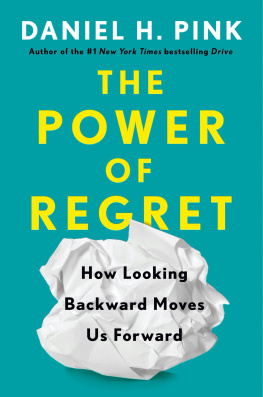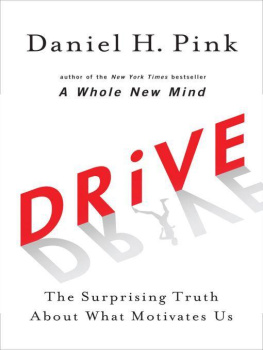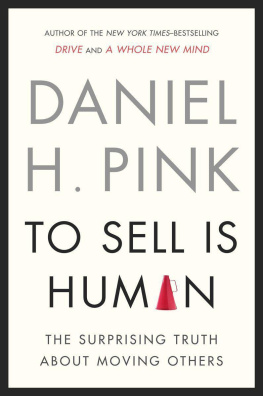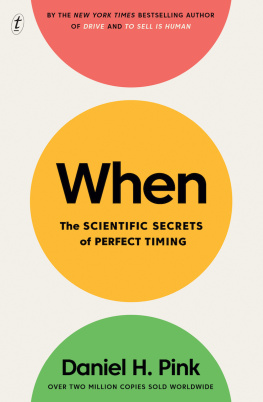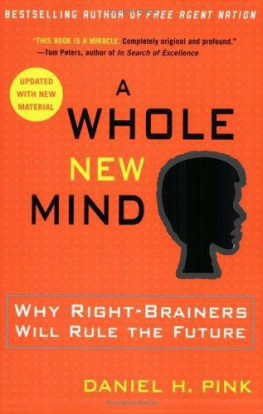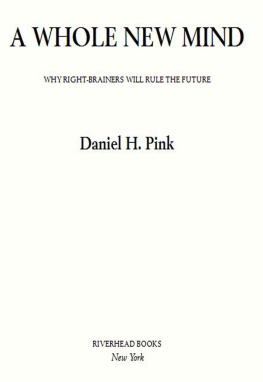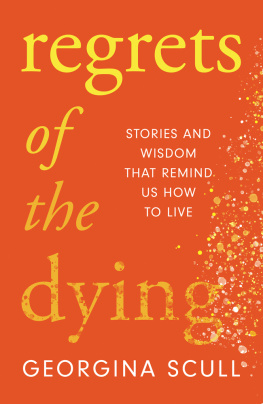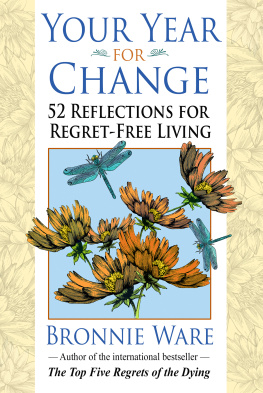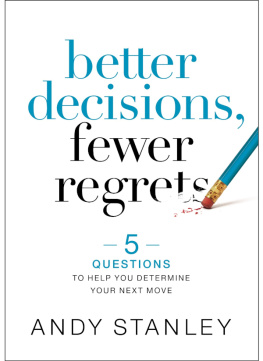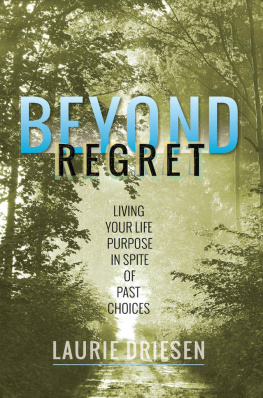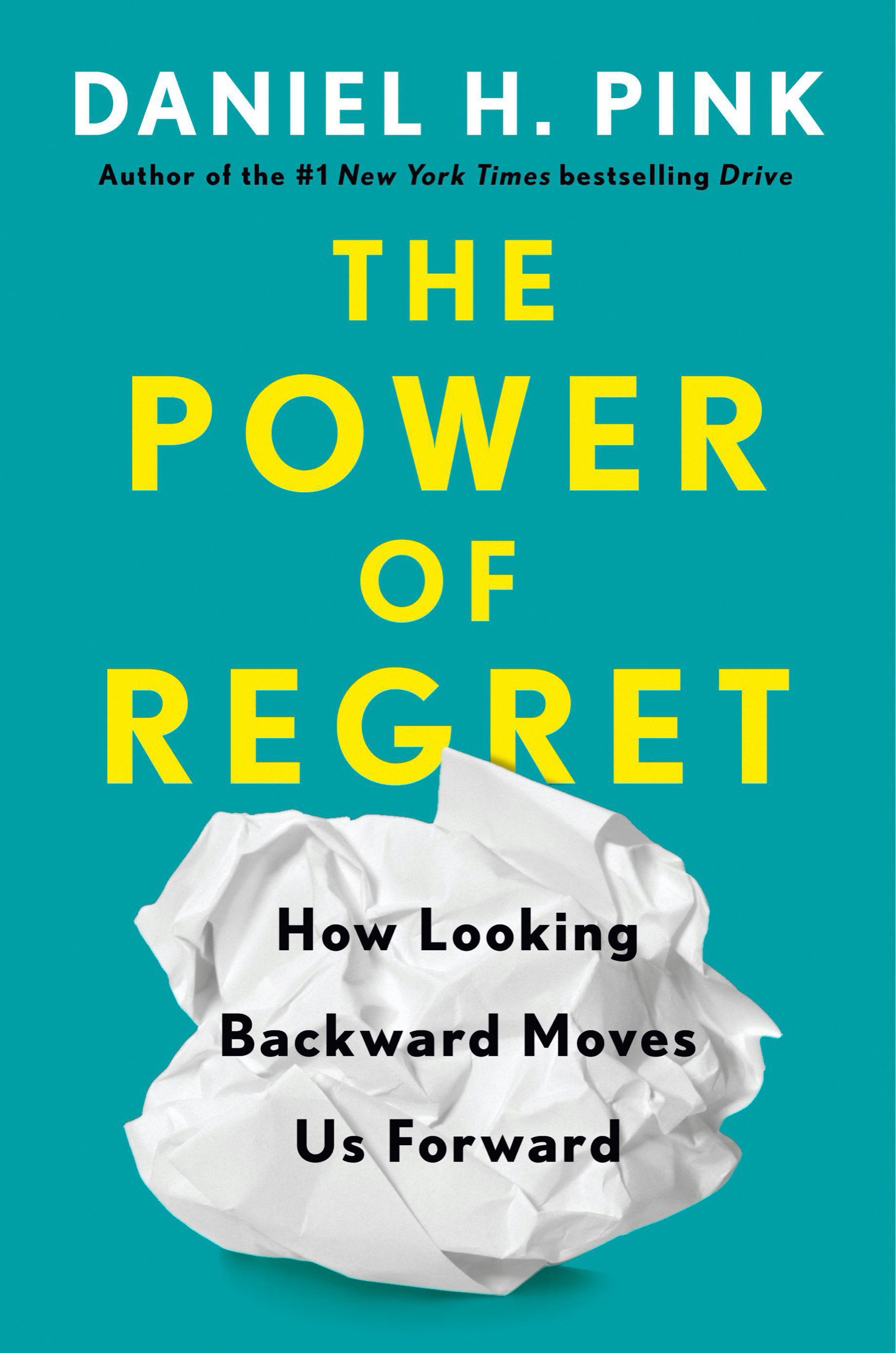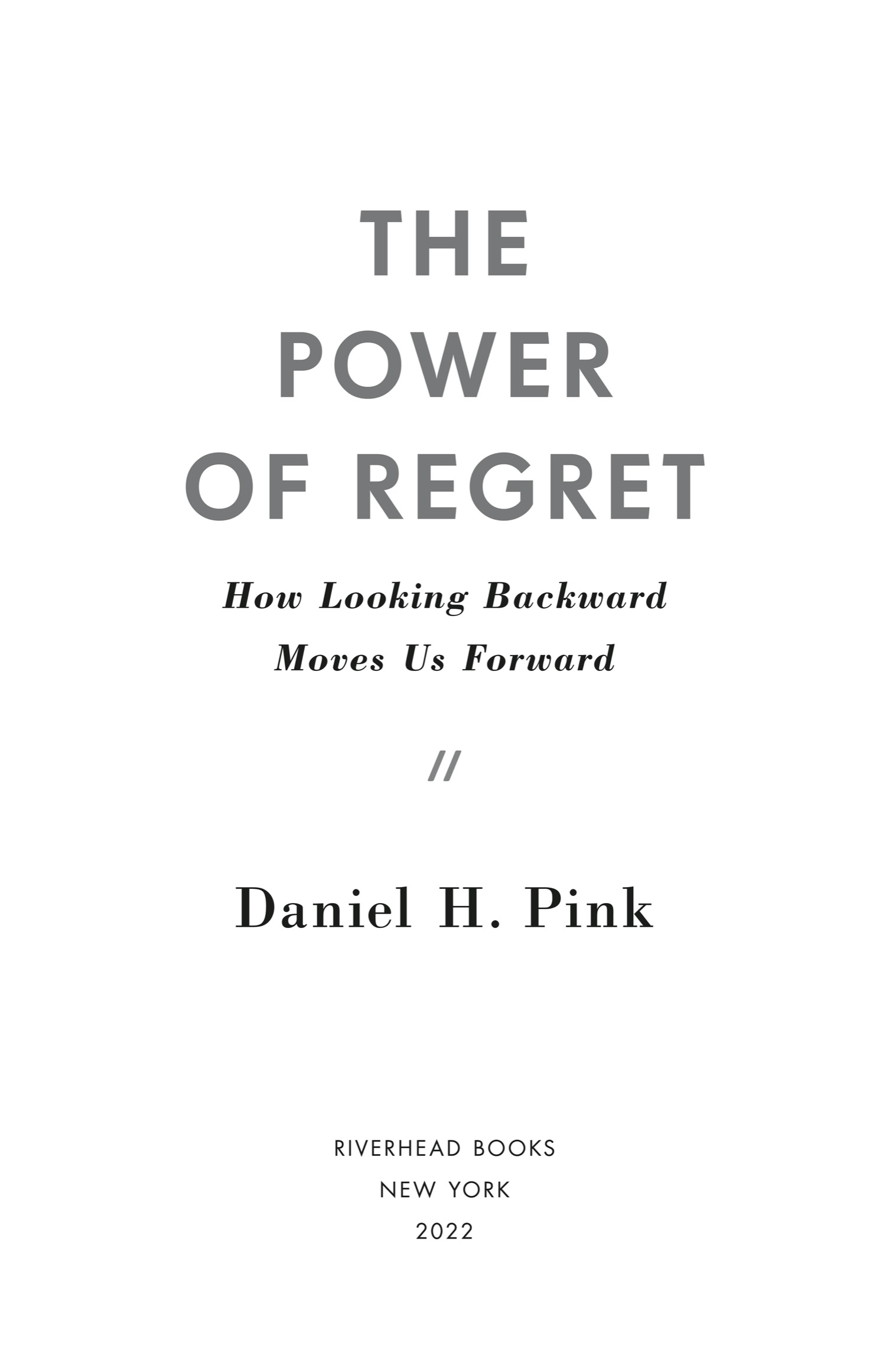Also by Daniel H. Pink
Free Agent Nation
A Whole New Mind
The Adventures of Johnny Bunko
Drive
To Sell Is Human
When

Riverhead Books
An imprint of Penguin Random House LLC
penguinrandomhouse.com

Copyright 2022 by Daniel H. Pink
Penguin supports copyright. Copyright fuels creativity, encourages diverse voices, promotes free speech, and creates a vibrant culture. Thank you for buying an authorized edition of this book and for complying with copyright laws by not reproducing, scanning, or distributing any part of it in any form without permission. You are supporting writers and allowing Penguin to continue to publish books for every reader.
Grateful acknowledgment is made for permission to reprint the following: page , tweet copyright 2020 by Ely Kreimendahl. Used with permission.
Riverhead and the R colophon are registered trademarks of Penguin Random House LLC.
Library of Congress Cataloging-in-Publication Data
Names: Pink, Daniel H., author.
Title: The power of regret: how looking backward moves us forward / Daniel H. Pink. Description: New York: Riverhead Books, 2022. | Includes bibliographical references and index.
Identifiers: LCCN 2021036660 (print) | LCCN 2021036661 (ebook) | ISBN 9780735210653 (hardcover) | ISBN 9780735210677 (ebook)
Subjects: LCSH: Regret. Classification: LCC BF575.R33 P56 2022 (print) | LCC BF575.R33 (ebook) | DDC 152.4dc23
LC record available at https://lccn.loc.gov/2021036660
LC ebook record available at https://lccn.loc.gov/2021036661
International edition ISBN: 9780593541487
Cover design: David Litman
Cover image: C12 / iStock / Getty Images Plus
Book design by Amanda Dewey, adapted for ebook by Maggie Hunt
pid_prh_6.0_139092985_c0_r0
CONTENTS
Regret is not dangerous or abnormal, a deviation from the steady path to happiness. It is healthy and universal, an integral part of being human. Regret is also valuable. It clarifies. It instructs. Done right, it neednt drag us down; it can lift us up.
In other words, the inability to feel regretin some sense, the apotheosis of what the no regrets philosophy encourageswasnt an advantage. It was a sign of brain damage.
Two decades of research on counterfactual thinking exposes an oddity: thoughts about the past that make us feel better are relatively rare, while thoughts that make us feel worse are exceedingly common. Are we all self-sabotaging masochists?
Dont dodge emotions. Dont wallow in them either. Confront them. Use them as a catalyst for future behavior. If thinking is for doing, feeling can help us think.
Human life spreads across multiple domainswere parents, sons, daughters, spouses, partners, employees, bosses, students, spenders, investors, citizens, friends, and more. Why wouldnt regret straddle domains, too?
Whats visible and easy to describethe realms of life such as family, education, and workis far less significant than a hidden architecture of human motivation and aspiration that lies beneath it.
Foundation regrets begin with an irresistible lure and end with an inexorable logic.
At the heart of all boldness regrets is the thwarted possibility of growth. The failure to become the personhappier, braver, more evolvedone could have been. The failure to accomplish a few important goals within the limited span of a single life.
Deceit. Infidelity. Theft. Betrayal. Sacrilege. Sometimes the moral regrets people submitted to the surveys read like the production notes for a Ten Commandments training video.
What gives our lives significance and satisfaction are meaningful relationships. But when those relationships come apart, whether by intent or inattention, what stands in the way of bringing them back together are feelings of awkwardness. We fear that well botch our efforts to reconnect, that well make our intended recipients even more uncomfortable. Yet these concerns are almost always misplaced.
The four core regrets operate as a photographic negative of the good life. If we know what people regret the most, we can reverse that image to reveal what they value the most.
But with regrets of action, I still have the chance to recalibrate the presentto press Ctrl+Z on my existential keyboard.
Following a straightforward three-step process, we can disclose the regret, reframe the way we view it and ourselves, and extract a lesson from the experience to remake our subsequent decisions.
As a universal drug, anticipated regret has a few dangerous side effects.
Though we would like to live without regrets, and sometimes proudly insist that we have none, this is not really possible, if only because we are mortal.
James Baldwin, 1967
Part One
REGRET RECLAIMED
//
1.
The Life-Thwarting Nonsense of No Regrets
On October 24, 1960, a composer named Charles Dumont arrived at the posh Paris apartment of Edith Piaf with fear in his heart and songs in his briefcase. At the time, Piaf was perhaps the most famous entertainer in France and one of the best-known singers in the world. She was also quite frail. Although she was just forty-four years old, addiction, accidents, and hard living had ravaged her body. She weighed less than a hundred pounds. Three months earlier Piaf had been in a coma because of liver damage.
Yet despite her wispy presence, she remained notoriously mercurial and hot-tempered. She considered Dumont and his professional partner, lyricist Michel Vaucaire, who had joined him on the visit, second-rate musical talents. Earlier in the day, her secretary had left messages trying to cancel the meeting. Piaf initially refused to see the men, forcing them to wait uneasily in her living room. But just before she went to bed, she appeared, swaddled in a blue dressing gown, and relented.
Shed hear one song, she told them. Thats it.
Dumont sat down at Piafs piano. Sweaty and nervous, he began playing his music while softly speaking the lyrics Vaucaire had written.
Non, rien de rien.
Non, je ne regrette rien.
No, nothing at all.
No, I regret nothing at all.
She asked Dumont to play the song again, wondering aloud whether hed really written it. She assembled a few friends who happened to be visiting to hear it. Then she gathered her household staff for a listen.
Hours passed. Dumont played the song over and over, more than twenty times, according to one account. Piaf telephoned the director of LOlympia, the premier Parisian concert venue, who arrived just before dawn to hear the work.
Non, rien de rien.
Non, je ne regrette rien.
Cest pay, balay, oubli.
Je me fous du pass.
No, nothing at all.
No, I regret nothing at all.
Its paid, swept away, forgotten.
I couldnt care less about the past.
A few weeks later, Piaf sang the two-minute, nineteen-second song on French television. In December, when she performed it as the rousing final number of a concert that helped rescue LOlympia from financial ruin, she received twenty-two curtain calls. By the end of the following year, fans had purchased more than one million copies of her Je ne regrette rien record, elevating her status from chanteuse to icon.

